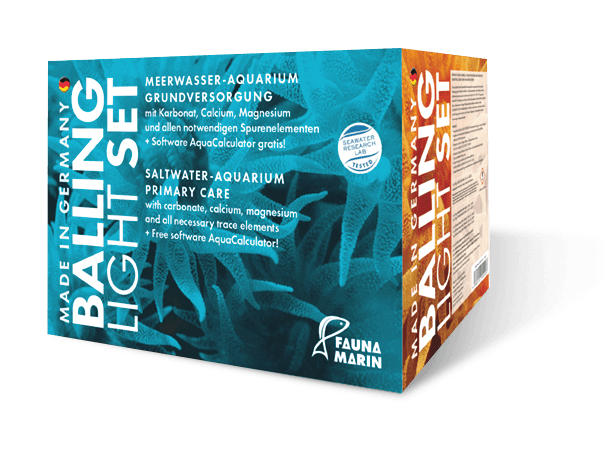Cobalt
Cobalt is an essential element and is found in reef aquaria only in the form of vitamin B12. It is produced by symbiotic bacteria in the slime secretions of corals, but is also supplied to the aquarium via supply systems and feed. Too high concentrations of cobalt promote the formation of cyanobacterial coatings and darkens corals. Too high concentrations of the vitamin B12 also promote the reproduction of certain dinoflagellate species. Even if cobalt should not be detectable in the ICP analysis, our supply system and feedstuffs contain sufficient cobalt. Due to the extremely small amount required, the element is usually below the detection limit, i.e. is not shown detectable in the laboratory report.
What’s this:
Cobalt is an important essential element that belongs to the iron group and is a component of the important vitamin B12.
Problems:
Low growth and susceptibility of coral to parasites.
Measures:
Insufficient cobalt values reduce growth and colour formation.
Indicator species:
No specific genera or species, but generally low growth and dull colours, low gloss, susceptibility to RTN or STN.
Value too high:
Is extremely rare and can be reduced by stopping the vitamin supply.
Value too low:
Elementals Trace Co / Addition via vitamin mixture.
| Variety | transition metal |
|---|---|
| Benefit | Yes essential |
| Reference value | 0,5–2 µg/l (0,26 US.liq.gal.) |
| Skill Level | Red, only for experienced aquarists |
| Source | salt, supply systems trace element mixtures, feed |
| Available | Elementals Co, Balling-Light-System, Feed, Food Energizer |
| Importance 1–6 | 5 |
| Detection quality | medium |

Balling Light:
Cobalt is added to the system via Trace Elements 2. In the other systems, the addition takes place via Organic and via Color Elements. If the values are too low, a salt change to Professional Sea Salt or individual dosing of Elementals Trace Co can be used. Cobalt is best reduced by changing part of the water and reducing the dosage. An excessive dosage of vitamin mixtures is often the reason for too high concentrations.
Corals
A coral represents a symbiotic system, not only because of its symbiotic community with symbiotic algae, but also because of the bacterial populations that live, for example, in its mucous secretions. Both the bacteria and the symbiotic algae contribute to the high energy turnover in the coral reef.
Corals use the mucous secretions on their body surface to catch bacteria in addition to other particulate food. However, many bacteria use these secretions as growth medium. Studies have shown that the population density of bacteria can be 100 times higher than that of the surrounding water, and the concentration of vitamin B 12 can be 350 times higher!
The mucus secretions of corals are an extremely important factor in the nutrition of corals. These secretions which also get into the open water as small suspended particles, contain not only bacteria but also many nutrients and B vitamins. It has now been proven that corals also absorb and utilize their own mucus secretions. The exact processes and bacterial species that are present on corals are still part of numerous studies, but there is practically no reef inhabitant that does not benefit directly or indirectly from the performance of bacteria and corals.
Particulate food at the smallest size level is therefore extremely important for the health of corals and other reef inhabitants. When developing our product MIN S, we paid attention to the fact that coral food supports the symbiosis bacteria within the coral mucus secretions. Special proteins and trace element mixtures on organic basis are extremely important. In addition to feeding the coral they also support the corals’ ability to develop all the protective and beneficial mechanisms.
Cobalt is added via the Balling Light System and various feeds in our systems. For experienced reef aquarists, we offer Elementals Cobalt as an individual dosing option. Due to the very low measuring range, there is a possibility that cobalt cannot be detected although a sufficient supply is guaranteed. Therefore, only dose cobalt if you already have a lot of experience, or after a detailed consultation. Values that are too high can only be reduced by partial water changes, ozone and reducing dosages.
Tip:
In the Fauna Marin Reefkeeping systems, the supply of calcium and trace elements is ensured by inorganic products. The supply of vitamins, organic additives and amino acids is regulated separately. Additional dosing of vitamins is not necessary as these are integrated in the corresponding products and also contained in the Balling Light System. Cobalt is measured in order to detect excessive values. Too high doses of vitamin mixtures often lead to a cyano or dinoflagellate plague.